Inspired
Liz Ngwane is Fostering Sustainable Fashion in Cameroon by Recycling Waste for Art & Clothing

Liz Ngwane adorned in her headwrap and dress designs. Photo Courtesy : Liz Ngwane.
Oil and water don’t mix, they say. In the case of Liz Ngwane, you can make that, oil and sustainable fashion. The designer and influencer gave up a job in the lucrative oil business in order to build a sustainable Cameroonian fashion label. Now, she wants to use her own example to help change an industry.
“Having conversations with makers, creating memories and passing on, picking quality over quantity, (that) will help us in the fight against fast fashion,” is what Liz Ngwane says the buying and wearing of clothing should all be about. Value, Ngwane insists, lies in the story that a dress starts – and continues – to tell.
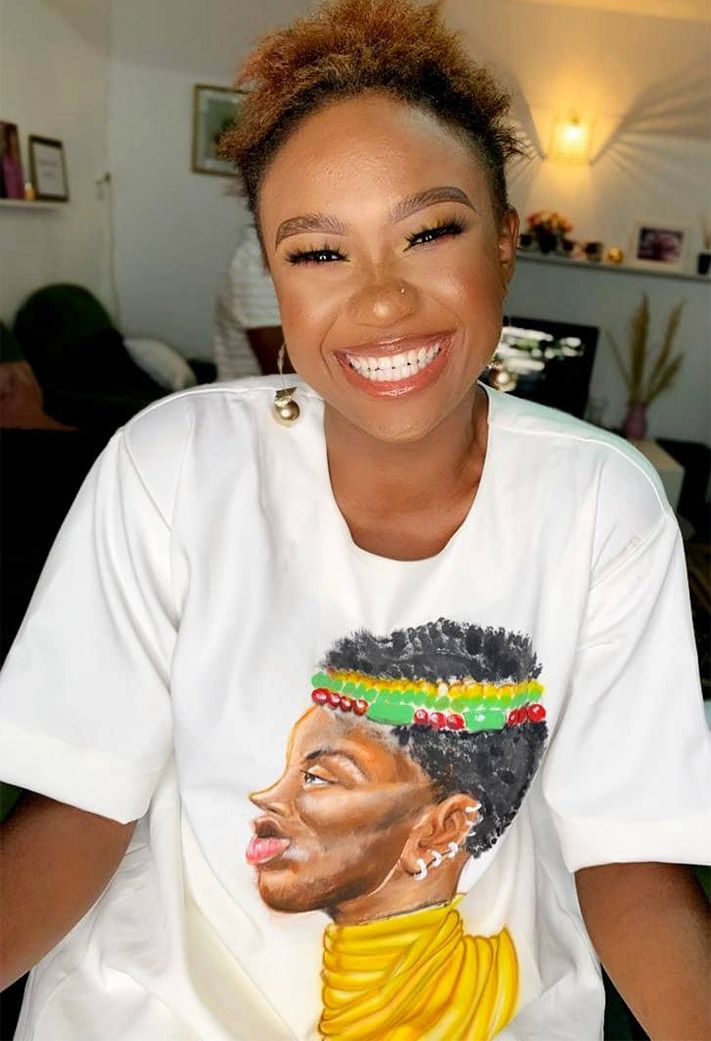
In a world where fashion fads can last only days and where ordering new garments is as easy as picking up a phone, this Cameroonian fashion designer is ready to take on an industry, no matter how tough that road might be. But then, self-sacrifice is clearly something Ngwane is well prepared for.
After graduating from the University of Buea with a degree in Environmental Engineering, Ngwane initially joined SCDP, Cameroon’s national oil storage and distribution company, as a quality control agent. Away from the office, however, she was moving in a very different direction. She had started learning about tailoring and soon began building a brand that would make sustainable fashion its defining mission.
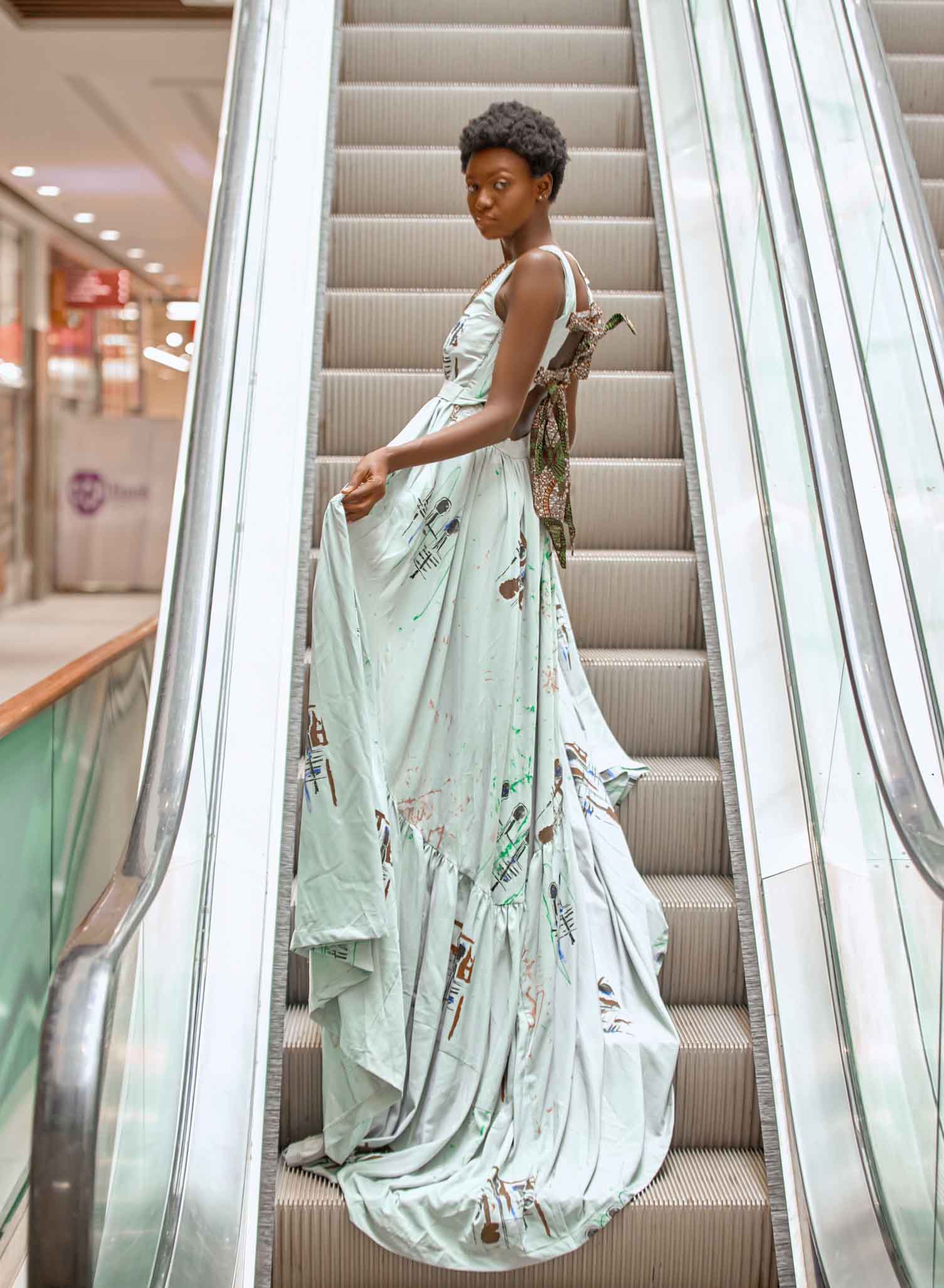
Models dressed in Liz Ngwane designs. Photo Courtsey : Liz Ngwane
Margo’s Mode is named for Ngwane’s late mother, Margo Dione, a fabric seller who left Ngwane a stack of fabrics when she passed. When Ngwane’s fledgeling business picked up, she abandoned the oil industry and buried herself in the hard work of recycling waste for art and clothing, organizing fashion shows that highlighted solutions to waste disposal and initiating trends that leaned more towards exotic minimalism than fast fashion.
Ngwane is a big believer in the Cameroonian tradition of passing clothes down to the next generation. Encouraging this tradition, she believes, is one way to help “slow down the mad rush for new things”.
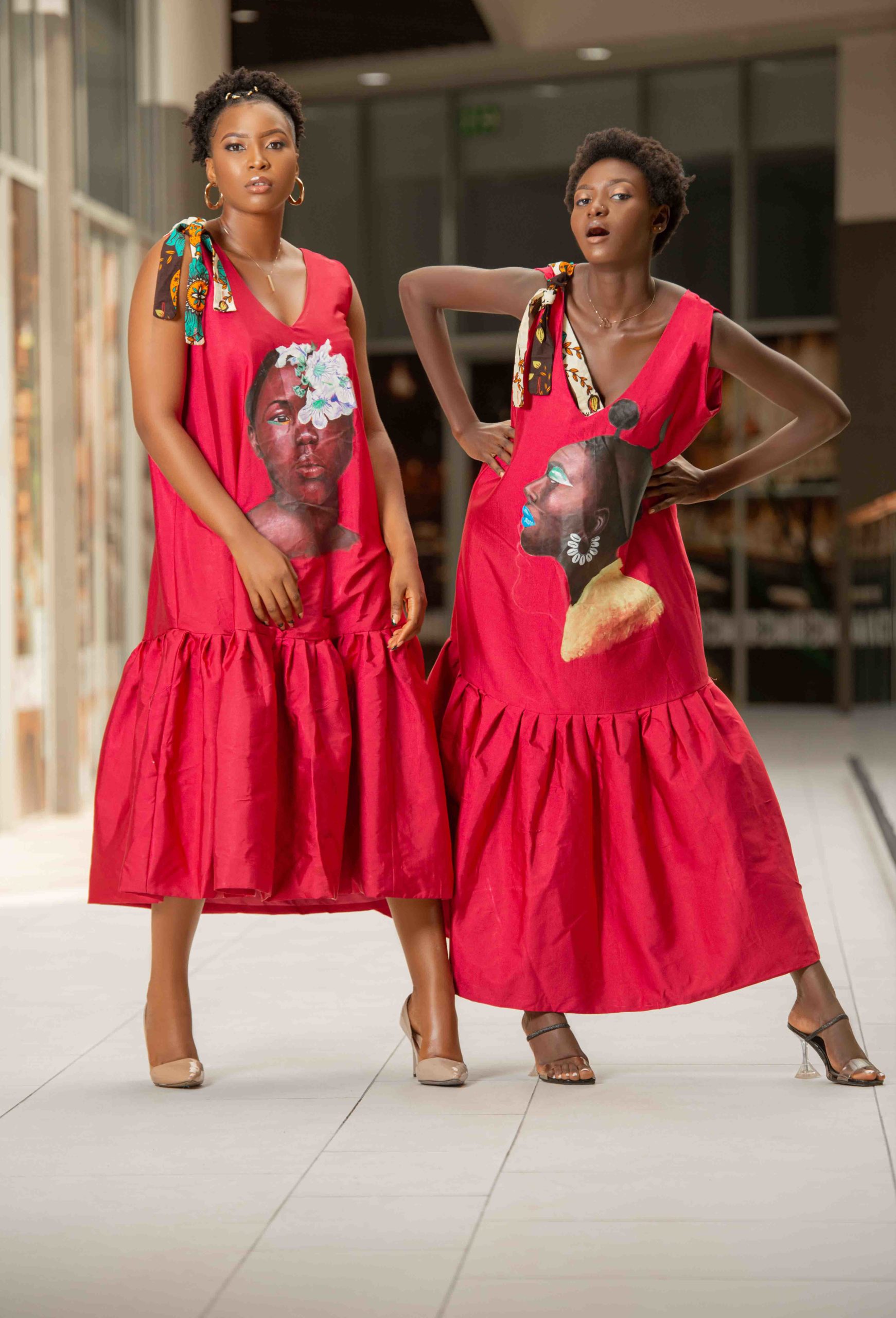
Models dressed in Liz Ngwane designs. Photo Courtsey : Liz Ngwane
Slowing down also addresses some of the social justice issues Ngwane cares about – like child labour and modern slavery. For her, the transparent nature and accountability that is built into sustainable fashion makes it easier to weed out abuse in the industry, both at home and abroad. She hopes more African designers adopt an environmentally-friendly approach because that, she believes, is the future of fashion and business.
An important part of Liz’s approach is messaging, and that starts before she ever hangs a dress on a rack or puts together an exhibition. From her base in Buea, she takes time to build narratives around personal experiences and stories.
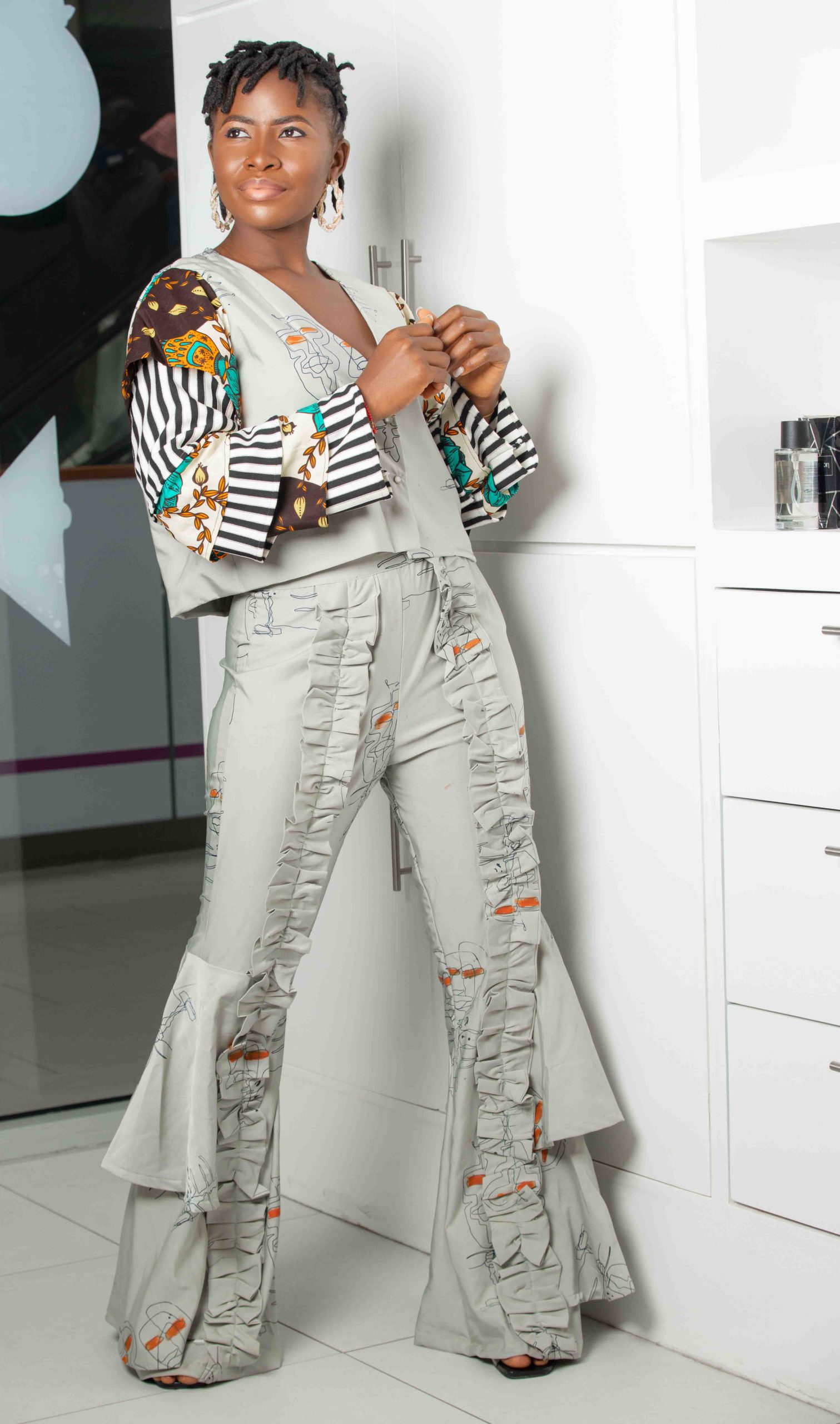
Model dressed in Liz Ngwane designs. Photo Courtsey : Liz Ngwane
“We should stop calling it fashion. When we call it clothes, people relate to it more,” she says.
Putting back the soul into fashion, letting the craftsman engage with materials and having their products reflect that journey, she argues, adds value to clothes, helps turn a profit for the business and raises workers’ wages. This in turn creates more jobs and builds the community.
For an industry that accounts for as much as 10 per cent of global carbon emissions (at least 4 per cent of all greenhouse gas emissions, according to a report by McKinsey) and as much as 20 per cent of wastewater, Ngwane’s words should ring loud. The industry is on course to drastically overshoot goals to reduce its greenhouse gas emissions by 2030 and help keep the world on a pathway to a maximum of 1.5 degrees of global warming.
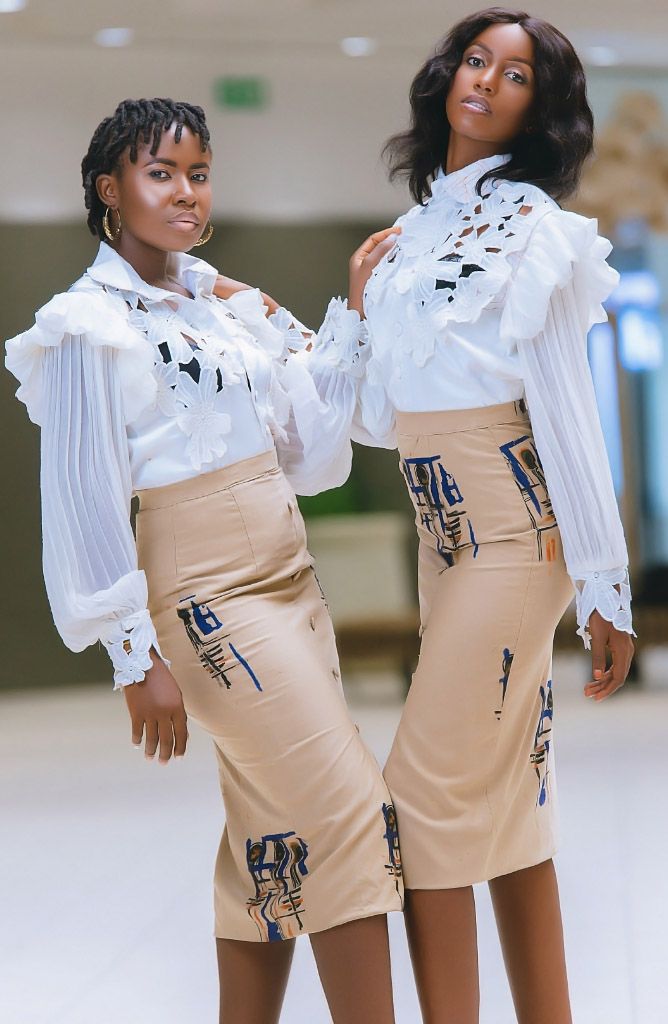
Ngwane is an active speaker on issues around fashion, the environment, and inclusive development. She acknowledges that following her path is difficult but believes it adds more value for everyone.
Operating in a business environment like Cameroon, Ngwane should know. Environmentally friendly raw materials are hard to find so it takes deliberate, painstaking effort to source biodegradable, non-toxic, and affordable fabric. Add to that the difficulties that small businesses in Cameroon face, like high taxes, no access to capital, limited marketing budgets and almost no distribution infrastructure, and there’s every reason why Cameroonian fashion designers should try to cut costs by using cheaper fabrics that are more likely to be toxic.
Ngwane takes the opposite view.
“Sustainability is inherently African. We have eco-friendly processes already. Craftsmanship is sustainable,” she says.
That doesn’t make it easy, though. After a design concept has been finalized, Ngwane sources the right sustainable materials for the project. Her cotton comes from the north of Cameroon and Douala, Cameroon’s economic capital. She is picky, despite the limited organic alternatives in Cameroon. Some of the materials are expensive, but she says she’s chosen planet and legacy over pollution and profit. After assembling her raw materials she does more sketches before moving into production.
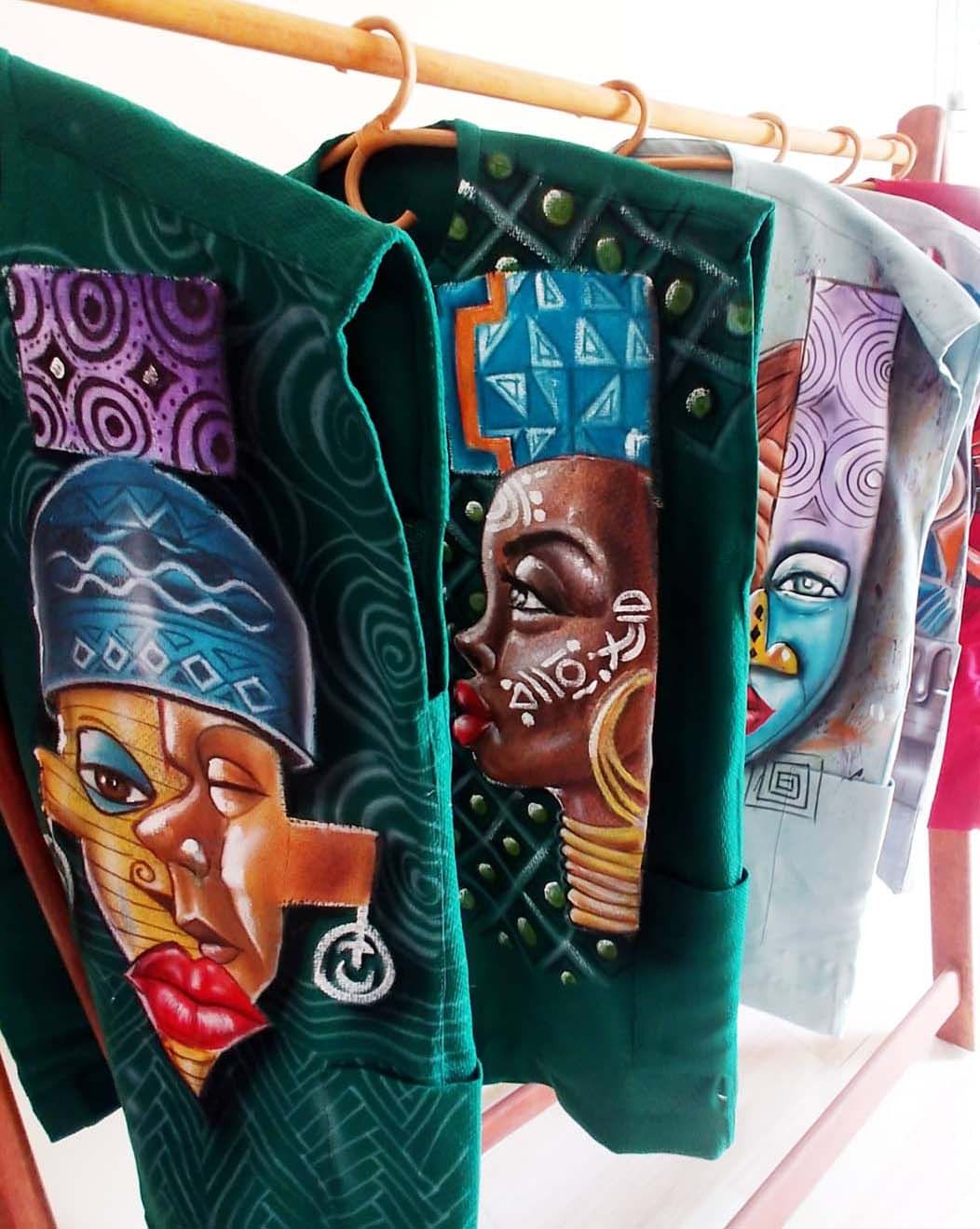
Product exhibitions are done live in Cameroon and on online platforms. Margo’s Mode is a rich experimental blend of legacy Cameroonian couture with trendy modern fashion all designed to help young people look forward without forgetting their roots.
Other times she’s simply just trying to capture a season. Inspiration also comes from interacting with a fabric or conveying symbols to materials. There are also moments when it’s all about displaying art on the runway with no regard for how it fits on the human body.
There are also very bold one-off designs that can’t be reproduced because Ngwane doesn’t mind applying paint to the fabric. She also loves to recycle waste into wearable materials she can wear or display.
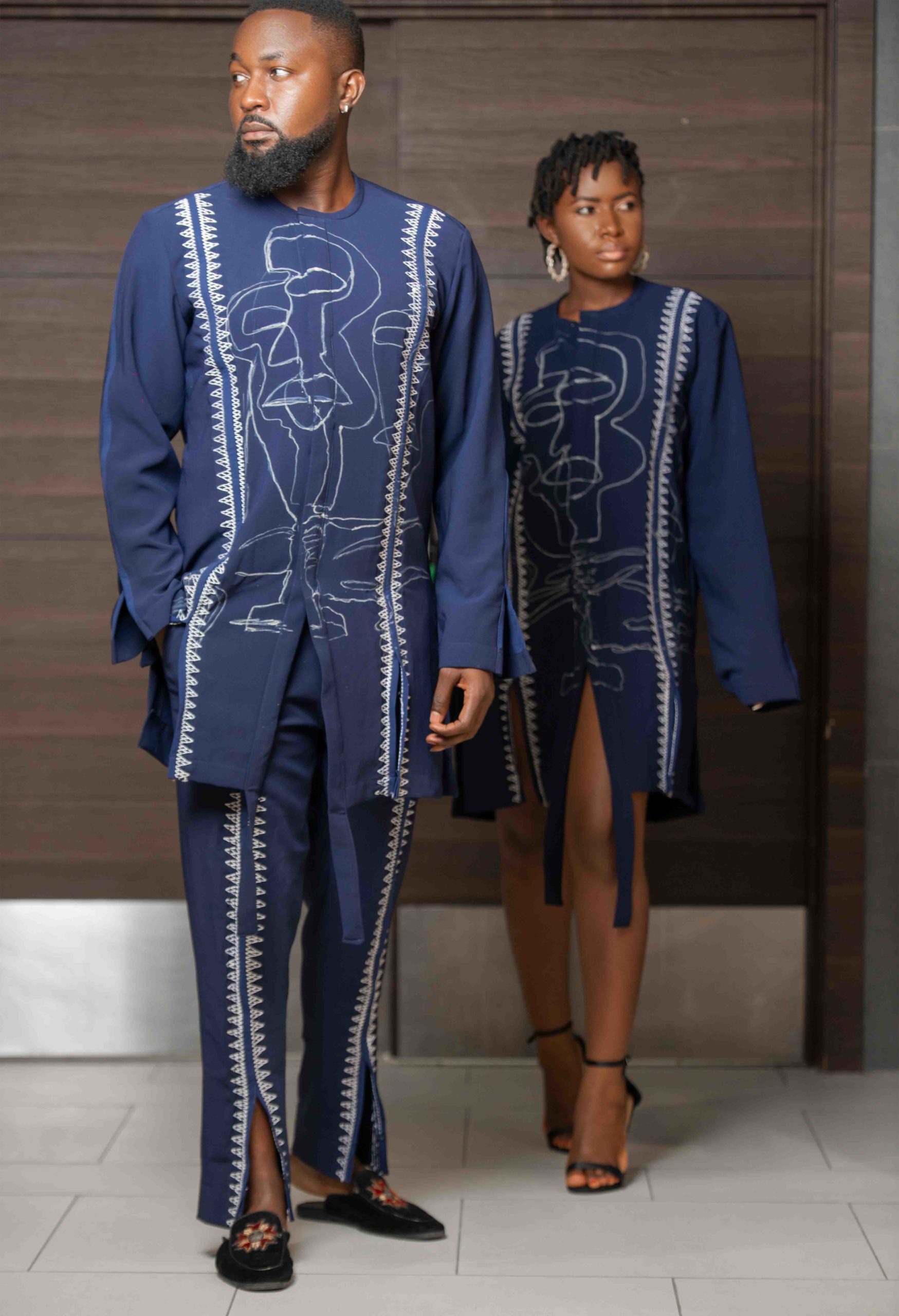
Models dressed in Liz Ngwane designs. Photo Courtesy: Liz Ngwane
Her outings on the international stage include a Zoom feature at Brooklyn Fashion Week in 2021, an exhibition at Finland Fashion week in 2018, and a promo during African Heritage Week in Nigeria in 2019.
At home in Cameroon, she’s won several awards including best designer (Cameroon Fashion Designers’ Award) in 2017 and in 2020 (Camofest). As one of Cameroon’s most influential designers, Ngwane recommends starting with simple things – especially when it comes to sustainability.
“We should reduce the quantity of water used in the fashion industry and find alternatives to the toxic chemicals we currently use to dye our products.”



















